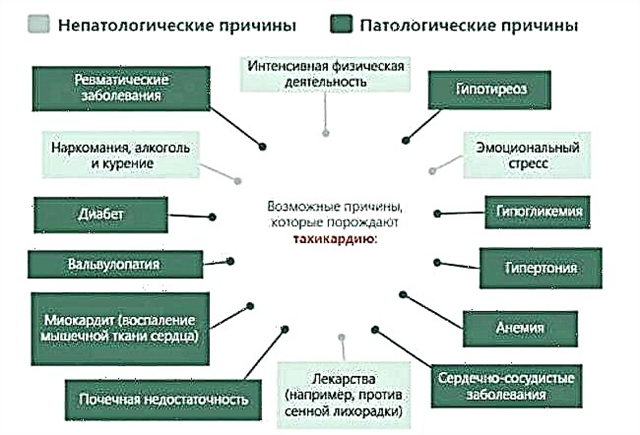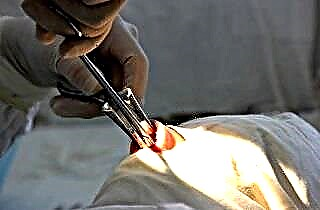Defense mechanisms
 Some physiological reactions that take place in the body are a defense mechanism to prevent the development of the disease. When pathogenic microorganisms settle on the nasopharyngeal mucosa, the production of mucus increases, thereby flushing microbes from the inner surface of the nose. Due to cilia and mucous secretions, pathogens accumulate in the nasal cavities, without being able to move further along the respiratory tract. The development of the inflammatory process is accompanied by the production of pyrogens, which have a direct effect on the processes of thermoregulation. As a result, temperatures rise and we feel hot.
Some physiological reactions that take place in the body are a defense mechanism to prevent the development of the disease. When pathogenic microorganisms settle on the nasopharyngeal mucosa, the production of mucus increases, thereby flushing microbes from the inner surface of the nose. Due to cilia and mucous secretions, pathogens accumulate in the nasal cavities, without being able to move further along the respiratory tract. The development of the inflammatory process is accompanied by the production of pyrogens, which have a direct effect on the processes of thermoregulation. As a result, temperatures rise and we feel hot.
Hyperthermia is a physiological protective reaction, so you need to start fighting it only after exceeding 38 degrees.
ARVI
A huge group of diseases that are accompanied by a runny nose and fever is ARVI. The infection is transmitted by talking, coughing, sneezing (through the air stream). The cause of the onset of symptoms in an adult can be infection with rhinos, corona, adenoviruses, influenza viruses, parainfluenza.
Symptoms
The severity of symptoms and the order in which they appear may vary depending on the type of infectious agent. So, what is typical for ARVI:
- hyperthermia. It can fluctuate in the range of 37-38 degrees, but with the flu it can reach 39 degrees or more. Fever usually persists for 3 days with a tendency to gradually decrease;
- feeling overwhelmed;
- aching joints, muscles;
- chills;
- severe malaise;
- decreased performance;
- dizziness;
- headache;
- poor appetite;
- photophobia;
- signs of conjunctivitis (lacrimation, conjunctival redness);
- sore throat;
- frequent sneezing;
- discharge from the nose. In the first stage of a cold, mucus is secreted in small quantities. As the disease progresses, the discharge becomes abundant, watery, while maintaining a transparent color. With the onset of the third stage, the snot acquires a yellow tint and becomes more viscous.
On examination, enlarged regional lymph nodes are revealed, of a densely elastic consistency and sensitive to palpation. Some diseases have an incubation period of up to 7 days, which means that after infection of the body, 6-7 days pass before the first clinical signs appear.
Complications of ARVI
Improper treatment or no treatment at all can lead to complications. They are associated with the spread of infection and inflammation:
- otitis. The inflammation covers the auditory tube, through which the nasal cavities are connected to the ear cavity. Thus, the infection enters the hearing organs;
- pharyngitis. Often, doctors diagnose nasopharyngitis if the patient is worried about sore throat, nasal congestion and fever;
- laryngitis. Symptomatically, the pathology is manifested by a barking cough, hoarseness and soreness when talking;
- bronchitis, which is characterized by severe cough, fever, and chest pain.
Among the severe complications of acute respiratory viral infections, it is worth highlighting myocardial damage, meningitis and infection of the biliary tract.
Therapeutic tactics
 We usually do not consult a doctor as soon as we get a stuffy nose. However, in some cases, not only a specialist examination is required, but also hospitalization. ARVI treatment includes:
We usually do not consult a doctor as soon as we get a stuffy nose. However, in some cases, not only a specialist examination is required, but also hospitalization. ARVI treatment includes:
- bed rest;
- plentiful warm drink (tea with ginger, herbs, honey, currants, raspberries);
- the appointment of anti-inflammatory drugs, which not only reduce inflammation, but eliminate pain and normalize temperature. Ibuprofen, Nimesil;
- the use of antihistamines (Tavegil) - to reduce swelling of the nasal mucosa, mucus production;
- the use of nasal medications with a vasoconstrictor effect (Nazol, Evkazolin) - to temporarily improve nasal breathing;
- cleansing the nasal passages from accumulations of mucus with saline solutions (Aqualor);
- gargling with antiseptics (Furacilin, Chlorophyllipt);
- taking antiviral drugs (Amiksin, Tsitovir, Remantadin);
- carrying out immuno-, vitamin therapy.
Sinusitis
Another disease that is accompanied by nasal congestion and hyperthermia is sinusitis. Its development is often caused by secondary bacterial infection.
Swelling of the nasal mucosa leads to impaired sanitation of the paranasal cavities and obstructed outflow of mucus.
The accumulation of secretion in the sinuses is accompanied by the activation of conditionally pathogenic flora, intensive reproduction of microorganisms and the development of an inflammatory process.
Symptoms
It is quite simple to suspect sinusitis. It is characterized by:
- severe nasal congestion;
- purulent discharge;
- pain in the paranasal zone, aggravated by bending;
- headache;
- nasalness;
- decreased sense of smell;
- fever;
- deterioration of the general condition.
As purulent secretion accumulates in the sinuses, a bursting feeling may occur in the paranasal region.
The duration of acute sinusitis is 15-20 days, after which recovery occurs or the inflammatory process becomes chronic.
Medical assistance
The main task of treatment is to ensure the outflow of purulent secretions and destroy the infection. For this:
- antibacterial agents of systemic action (Flemoklav) are prescribed, as well as for local administration (Bioparox);
- vasoconstrictor drops (Lazorin, Snoop) are buried;
- anti-inflammatory drugs (Nise) are used;
- the maxillary sinuses are washed, punctured to sanitize the focus of infection;
- mucolytics (Rinofluimucil) and herbal remedies (Sinupret) are prescribed.
After the end of the acute period, physiotherapy procedures are carried out.
How to prevent illness?
To protect yourself from diseases of the respiratory tract and ENT organs, you must follow some preventive recommendations.
General mode
What should you do every day?
- eat properly. The diet should contain fresh vegetables, fruits, cereals, fish, dairy products. You should not abuse fatty, fried, spicy foods, semi-finished products, soy products and other unhealthy foods;
- drink about 2 liters of liquid. Due to a sufficient supply of fluid, the normal operation of each body system is ensured, which prevents the appearance of organ dysfunction;
- walk for at least 3 hours. An evening walk is especially useful, during which the body is saturated with oxygen, which makes it easier to fall asleep;
- ventilate the room;
- carry out wet cleaning - to reduce the concentration of dust, microbes, allergens;
- avoid stress;
- get enough time to rest and sleep. The body must fully rest and recuperate, otherwise it becomes more susceptible to infection.
Immune defense
To strengthen the immune defense, you should:
- carry out vitamin therapy (Duovit, Supradin);
- take immunomodulators (Echinacea, ginger tea);
- vaccinate before a flu epidemic.
In addition, do not forget about regular preventive examinations, because nothing weakens the body, like a latent infection or a chronic somatic illness.



